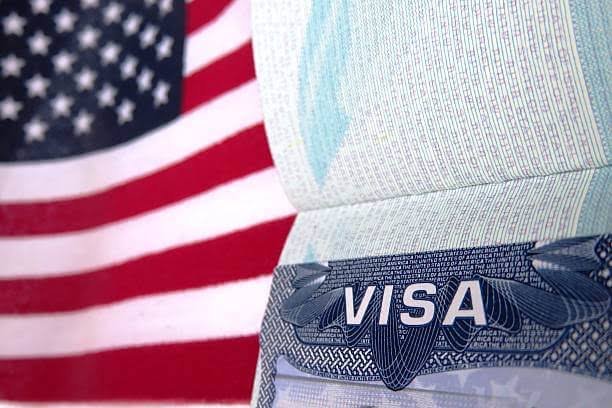Dealing with domestic violence is a profoundly difficult experience, compounded for immigrants who may also face threats related to their legal status. In such circumstances, the Violence Against Women Act serves as a vital source of hope and protection. The VAWA visa allows eligible survivors to apply for legal status in the United States independently of their abuser, offering a path to safety and security. At the Law Office of Lina Baroudi, we recognize how vital this form of protection can be in creating life-changing opportunities. Here’s how it can safeguard you and your loved ones while paving the way for a fresh start.
What is a VAWA Visa?
The Violence Against Women Act provides a pathway for survivors of domestic violence to obtain legal status in the United States independently, without the need for their abusive U.S. citizen or permanent resident spouse, parent, or child to be involved or informed. While its name highlights women, the act extends equal protection to men and women alike, offering crucial support to eligible survivors. This empowering solution helps individuals reclaim their autonomy without the fear of an abuser leveraging their immigration status.
Navigating the Process for Legal Protections Under VAWA
Eligibility Requirements: To qualify for protection under the Violence Against Women Act, survivors must prove they have experienced battery or extreme cruelty at the hands of a U.S. citizen or lawful permanent resident family member. Eligible relationships include spouses, children, and parents. Supporting evidence, such as police reports, medical records, affidavits, and other documentation, can strengthen the claim.
Filing Independently: A key benefit under the Violence Against Women Act is the ability for survivors to independently file a self-petition, Form I-360, without requiring the abuser’s knowledge or consent. This ensures that you remain in control of the process while maintaining your safety and privacy.
Confidentiality and Safety: USCIS takes confidentiality seriously, ensuring that abusers are not notified about your application. All VAWA applications are processed with utmost care and discretion to protect applicants.
How a VAWA Visa Protects You and Your Family
- Secure Legal Status: One of the key advantages of this immigration protection is the ability to obtain lawful status on your own. This means you no longer have to stay in an abusive environment due to fears of deportation or losing your residency rights.
- Access to Work Authorization: Securing protection under VAWA can grant work authorization, giving you the ability to legally work in the United States. Achieving financial independence is essential for rebuilding your life and providing for your family after escaping an abusive situation.
- Path to Permanent Residency: Once your VAWA petition is approved, you may be eligible to apply for a Green Card. This step is significant in ensuring long-term stability and integrating into the community as a permanent resident.
- Protection for Your Children: If your children are at risk of abuse or instability tied to your immigration status, the protections under the Violence Against Women Act can help safeguard them. They may also qualify to secure legal status, offering them safety and a more stable future.
- Access to Essential Services: Having legal status allows survivors to access essential social services, healthcare, and education programs that may have been out of reach due to immigration status restrictions. These resources can be vital for recovery and stability.
Emotional and Psychological Benefits
Gaining legal status through the provisions of the Violence Against Women Act is not just about protecting your rights; it’s about achieving emotional freedom. Many survivors feel confined by the dual burden of abuse and the fear of losing their immigration status. This pathway offers a sense of relief, independence, and the chance to rebuild your life without the constant fear of an abuser using immigration as a tool of control.
Considerations and Challenges
While pursuing protections under VAWA offers numerous benefits, it’s essential for applicants to understand the important considerations involved:
- Documentation and Evidence: Compiling the necessary documentation to prove abuse can be challenging. It’s essential to gather as much evidence as possible and consider speaking with counselors who can provide affidavits or reports to support your claim.
- Legal support: The application process can be intricate and overwhelming. Legal guidance from experienced professionals, like those at the Law Office of Lina Baroudi, can be invaluable in ensuring the success of your application.
- Emotional Complications: Revisiting the abuse during the application process can be emotionally taxing. It’s important to seek support from mental health professionals and support groups that can provide assistance and guidance during this time.
Steps to Take
- Seek Legal Advice: Consulting with an immigration attorney who understands the nuances of VAWA can help clarify your options and guide you through the process effectively.
- Document Everything: Keep records of all incidents of abuse, including photos, police reports, medical records, and any communication or messages related to the abuse.
- Connect with Support Networks: Reach out to domestic violence support organizations that can provide additional resources and counseling services to help you navigate this challenging time.
- File Your Petition: With the help of your attorney, submit Form I-360 along with all supporting documentation to USCIS. Make sure all documents are thorough and precise to prevent any delays or issues.
Conclusion
The VAWA visa represents a powerful tool for empowerment and protection for those suffering from domestic violence while facing immigration challenges. By allowing survivors to petition independently for their status, VAWA opens doors to safety, security, and a future filled with new possibilities. At the Law Office of Lina Baroudi, we are committed to helping you navigate this process, offering the legal support and compassionate guidance needed to rebuild your life and safeguard your family. If you or someone you know is in need of assistance, contact us for confidential and understanding support every step of the way.

